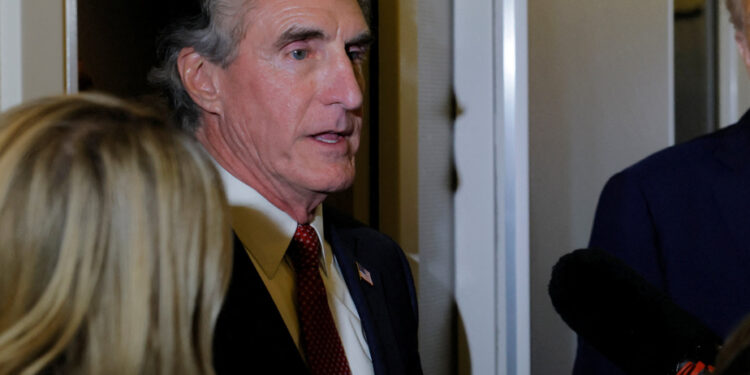(Juneau) The Trump administration on Thursday finalized plans to open the coastal plain of Alaska’s Arctic National Wildlife Refuge to possible oil and gas drilling, reigniting a long-running debate over whether to drill in one of the nation’s environmental gems.
U.S. Interior Secretary Doug Burgum announced the move Thursday, which paves the way for future lease sales in the reservation’s 631,309-acre coastal plain, an area considered sacred by the Gwich’in.
This plan delivers on commitments made by President Donald Trump and congressional Republicans to reopen this portion of the reservation to possible development. The president’s bill, providing tax breaks and budget reductions and passed this summer, called for at least four lease sales on the reservation over a 10-year period.
In Washington, D.C., Mr. Burgum was joined by Alaska Republican Governor Mike Dunleavy and the state’s congressional delegation for this and other land-related announcements, including the department’s decision to reinstate oil and gas leases on the reservation canceled by the previous administration.
In March, a federal judge ruled that the Biden administration did not have the authority to cancel the concessions, held by a state-owned company, the lead bidder in the first-ever concession sale for the reservation, held at the end of Donald Trump’s first term.
Leaders of indigenous Gwich’in communities near the reservation consider the coastal plain sacred, emphasizing its importance to a herd of caribou on which they depend, and oppose drilling in that region.
Leaders of Kaktovik, an Inupiaq community on the reserve, support drilling and view responsible oil development as essential to the economic well-being of their region.
“It is encouraging to see policymakers in Washington promoting policies that respect our voice and support Kaktovik’s long-term success,” Charles “CC” Lampe, president of Kaktovik Iñupiat, said in a statement.
A second lease sale in the refuge, held near the end of President Joe Biden’s term, attracted no bidders, but critics of the sale said its scope was too restrictive.
Meda DeWitt, senior director for Alaska at the Wilderness Society, said that with Thursday’s announcement, the administration “places corporate interests above the lives, culture and spiritual responsibilities of the people whose survival depends on the Porcupine caribou herd, the freedom to live on these lands and the health of the Arctic refuge.”
The measures detailed Thursday are consistent with those announced by Donald Trump upon his return to power in January, which also included calls to speed up construction of a road connecting the communities of King Cove and Cold Bay.
Mr. Burgum announced on Thursday the finalization of a land swap to build the road that would pass through the Izembek National Wildlife Reserve. King Cove residents have long called for a 24/7 land link through the reserve to the Cold Bay Airport, seeing it as essential for accessing emergency medical care. Mr. Dunleavy and the congressional delegation supported the initiative, calling it a matter of life and security.
Conservationists have vowed to challenge the deal in court, as some tribal leaders fear a road would drive away the migratory birds they depend on. The preserve, located near the tip of the Alaska Peninsula, is home to an internationally recognized habitat for migratory waterfowl. Previous land swap proposals have sparked controversy and litigation.



